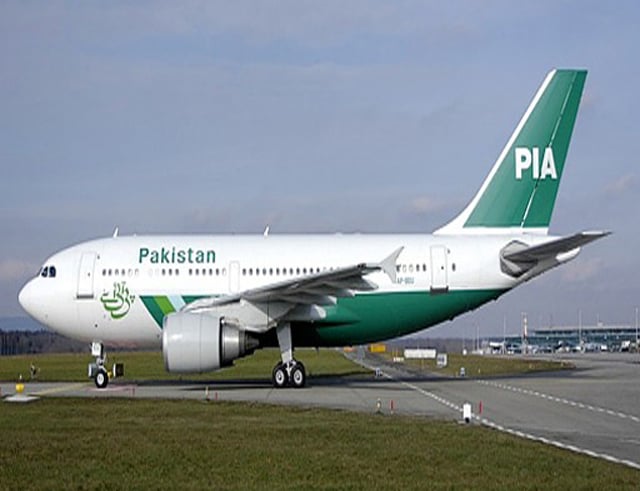ISLAMABAD:
Weeks after assuring the International Monetary Fund (IMF) that it would privatise Pakistan International Airlines (PIA) in July, the government has once again extended the deadline to the last quarter of this calendar year, underscoring the challenges it faces in initiating the privatisation process.
The government will also not be able to privatise any other entity in the current fiscal year, missing even its modest target of collecting a nominal Rs30 billion through privatisation proceeds.
PIA’s bidding is now expected to take place in the last quarter (October-December) of this year, said Muhammad Ali, the Adviser to the Prime Minister on Privatisation, after speaking at the Business Summit organised by Nutshell Group. The adviser spoke at length about the obstacles to the government’s privatisation agenda.
Last month, the privatisation ministry had informed the IMF that the PIA bidding was expected to happen in July 2025 and that an expression of interest to invite bidders would be issued in March. However, the government has again missed both of these deadlines.
The expression of interest will now be issued before the end of this month. After that, investors may need three to five months to complete the due diligence process and reach the bidding stage.
The government has once again approved the transaction structure that requires selling a minimum of 51% of shares in PIA to a private party. It is not clear whether an affiliate of a government ministry or department would be treated as a private party. This should be clarified in the expression of interest documents.
There have been unconfirmed reports about PIA’s profitability, but its accounts have not yet been made public to verify whether the claims refer to operational profits or accounting gains.
The first attempt to privatise PIA in October last year failed because the government ended up with only one bidder. Two other bidders backed out due to disagreements over tax waivers and clearing the remaining balance sheet.
Prime Minister Shehbaz Sharif’s government has not been able to privatise a single entity during its first year in power, and no entity will go under the hammer at least until June this year. The government had set a very modest target of generating Rs30 billion from privatisation proceeds.
The privatisation programme was approved in August last year, and 24 state-owned enterprises (SOEs) were selected for privatisation in three phases, with ten transactions scheduled for the first year. However, the first phase is already falling far behind schedule.
The second phase is to involve 13 SOEs over three years, while the third phase will span five years with just one transaction.
The government expects that the two parties involved in the first phase of PIA bidding will participate in the second phase as well, along with a third, new investor.
It has also missed the deadline to privatise the House Building Finance Company by the end of April. Last month, it had assured the IMF that the company would be sold by the end of this month.
The cabinet had approved the sale under a negotiated mode through a competitive bidding process. However, the bid was concluded with only a single bidder. The government had told the IMF that the sole bidder would complete the valuation in March and would then be invited to submit a bid offer.
Responding to a question, Muhammad Ali said that only PIA and the First Women Bank Limited could potentially be privatised this year. However, the government is also going to miss the deadline to privatise the First Women Bank Limited. It had assured the IMF that the bank would be privatised in May, but Ali said that the bank could now be privatised by July.
The Cabinet Committee on Intergovernmental Commercial Transactions (CCICT) had approved the government-to-government transaction in February 2024. The UAE has shown interest in acquiring the bank. The cabinet has approved the sale of the bank to the UAE with a full commercial banking mandate. A transaction commitment agreement was also signed with the UAE on 27th February 2025, and according to that agreement, a bid offer was expected by May 2025.
Going forward, there will be some real action, as all stakeholders now have a clear understanding of the need to end the government’s role in business, said Muhammad Ali at the Nutshell conference. He identified a lack of consistency in policies, judicial processes, and bureaucracy as the major impediments to the privatisation process in Pakistan.
He agreed there was a disconnect between foreign investors and the economy, as Pakistan’s economic structure is outdated and does not meet the needs of a modern economy.
“We have moved away from a merit-based society, and it leads to delusions — and people then migrate from the country,” said Muhammad Ali.
The adviser said that documentation of the economy and the tax structure were also affecting investor sentiment.
“But there is a clear understanding on the part of the prime minister and the government that we have to privatise,” said Ali. He added that privatisation would result in more competition, greater productivity, lower inflation, and economic growth. The government is trying to accelerate the process by improving the capacity of the privatisation commission, he added.


